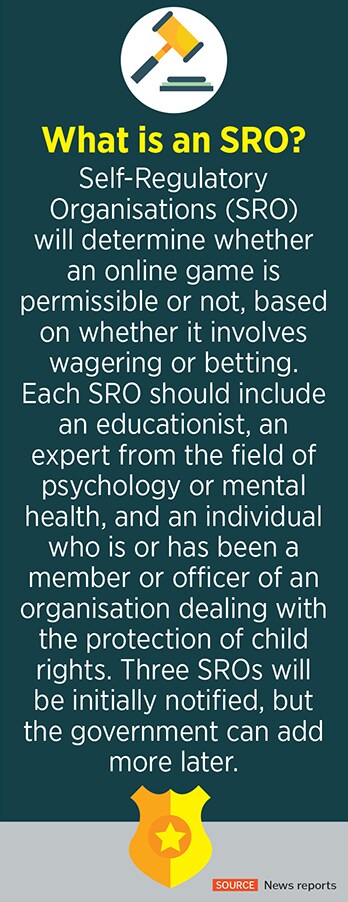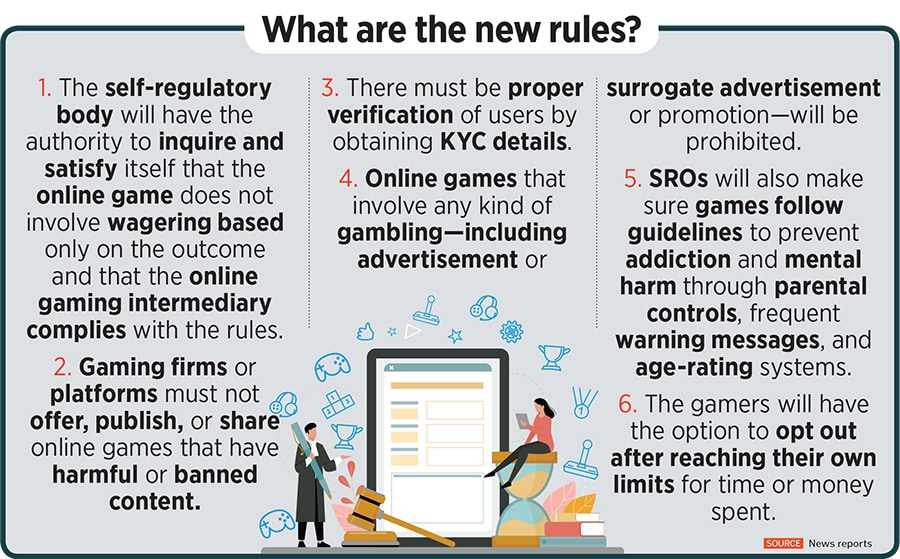
Can the gatekeepers for online gaming help curb betting, gambling?
Self-regulatory organisations comprising experts from education, mental health and children's rights will be at the heart of distinguishing between games of skill and gambling. How effective will they be?
 (Generic image) Online gaming companies were operating in almost a “free” space. These self-regulatory bodies, act as the middle ground and help provide a lot more clarity to such companies
Image: AFP
(Generic image) Online gaming companies were operating in almost a “free” space. These self-regulatory bodies, act as the middle ground and help provide a lot more clarity to such companies
Image: AFP
The online gaming industry has seen a fair share of turmoil over the past few years, especially due to the absence of a nodal ministry and a national regulatory framework. The last week, in particular, saw several developments related to the sector that have players with a skin in the game keeping a close watch.
The government issued regulations to govern the industry, prohibiting real-money games that are involved with wagering or betting. Minister of State for Electronics and IT Rajeev Chandrasekhar said that “permissible online games are those games, real money or otherwise, that do not involve wagering, user harm in its content and do not create any addictive consequences for children”. The Ministry of Electronics and Information Technology (MeitY) will appoint three self-regulatory organisations (SRO) that will certify permissible online games.
Additionally, MeitY notified the IT Rules to regulate the online gaming sector in India. This means online gaming will be exclusively under the central government’s regulatory purview, and states would only legislate on matters pertaining to betting and gambling—game of chance.
 Gopal Jain, senior advocate, Supreme Court of India, says, “The rules give a much-awaited legal recognition across the country to the online gaming industry, thus laying the foundation for its accelerated growth and reinforcing India’s tech leadership. Additionally, the rules ensure that there is a clear distinction between online gaming and games which are in the nature of betting, gambling and wagering. Any attempt by the states to regulate online gaming will defeat the intent of these rules, and will not withstand judicial scrutiny and will be against the Constitution.”
Gopal Jain, senior advocate, Supreme Court of India, says, “The rules give a much-awaited legal recognition across the country to the online gaming industry, thus laying the foundation for its accelerated growth and reinforcing India’s tech leadership. Additionally, the rules ensure that there is a clear distinction between online gaming and games which are in the nature of betting, gambling and wagering. Any attempt by the states to regulate online gaming will defeat the intent of these rules, and will not withstand judicial scrutiny and will be against the Constitution.”
However, days after the Centre notified amendments to the IT Rules 2021 to regulate online real-money gaming, Tamil Nadu Governor RN Ravi gave assent to a bill seeking to ban online gambling, including fantasy sports, online rummy and poker with stakes, in the state. “These rules [the notification of gaming rules by the Centre] do not change Tamil Nadu’s stance on online gaming. We don’t see any other way out except banning. Tamil Nadu will follow its own legislation,” said Justice K Chandru, retired Madras High Court judge, who led a four-member committee tasked with giving recommendations on online gaming in the state, according to news reports. It is speculated that there could be a legal battle between the state and Centre ahead.









